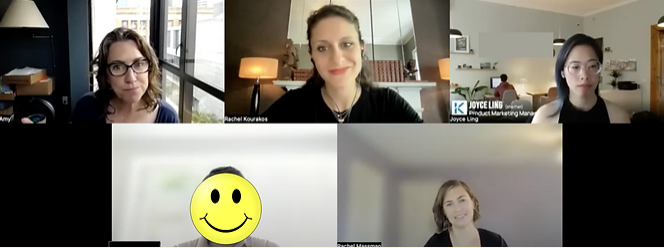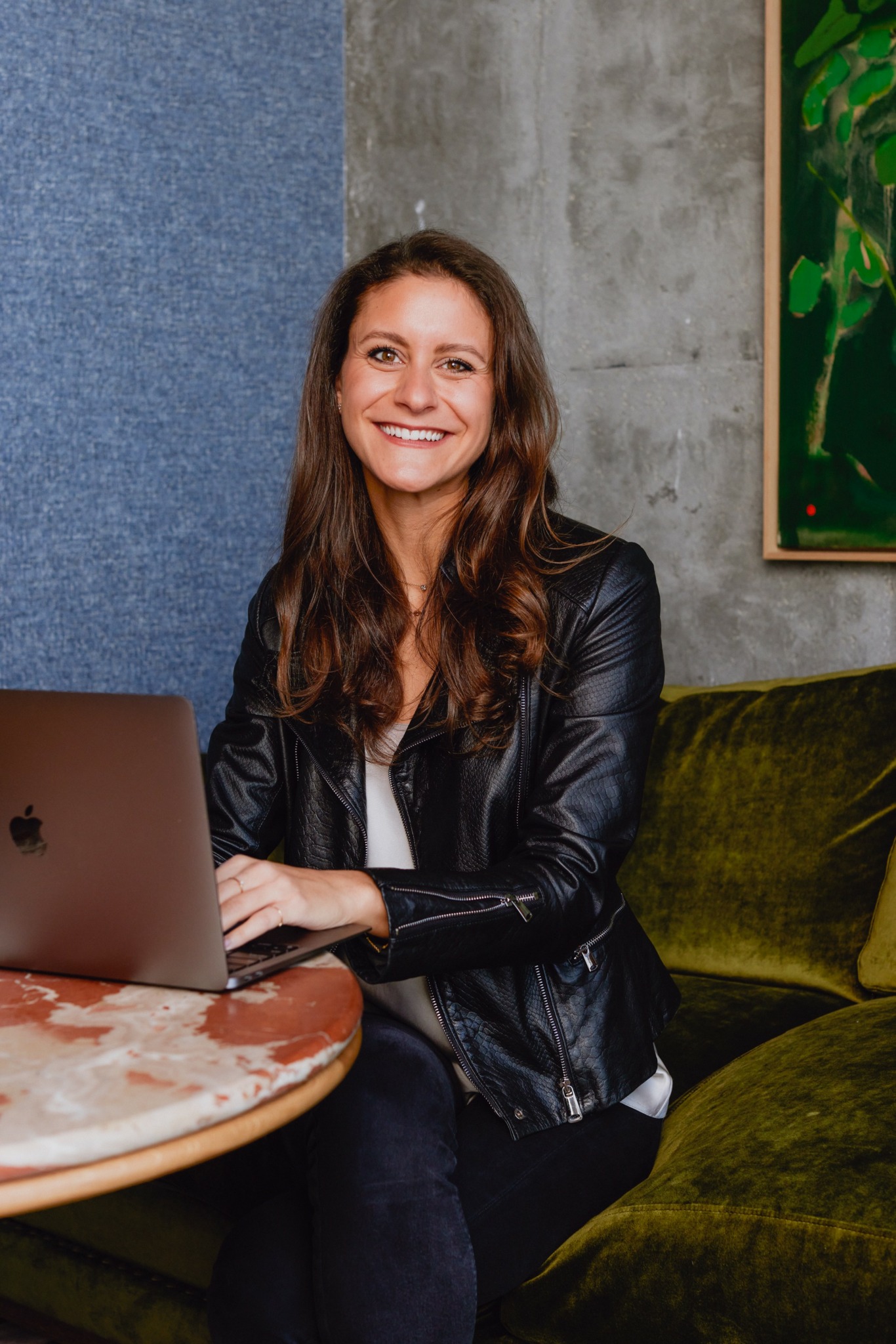We’re excited to introduce you to the always interesting and insightful Rachel Kourakos. We hope you’ll enjoy our conversation with Rachel below.
Alright, Rachel thanks for taking the time to share your stories and insights with us today. Let’s talk legacy – what sort of legacy do you hope to build?
I hope that my legacy will be helping people develop a completely different sense of self that allows them to achieve their goals and contribute to the world around them. I know the power of one conversation and how that can change the trajectory of someone’s life. I hope to encourage, inspire and nudge people to seek the magic, presence and endless possibilities that we all have available to us to make a better world.
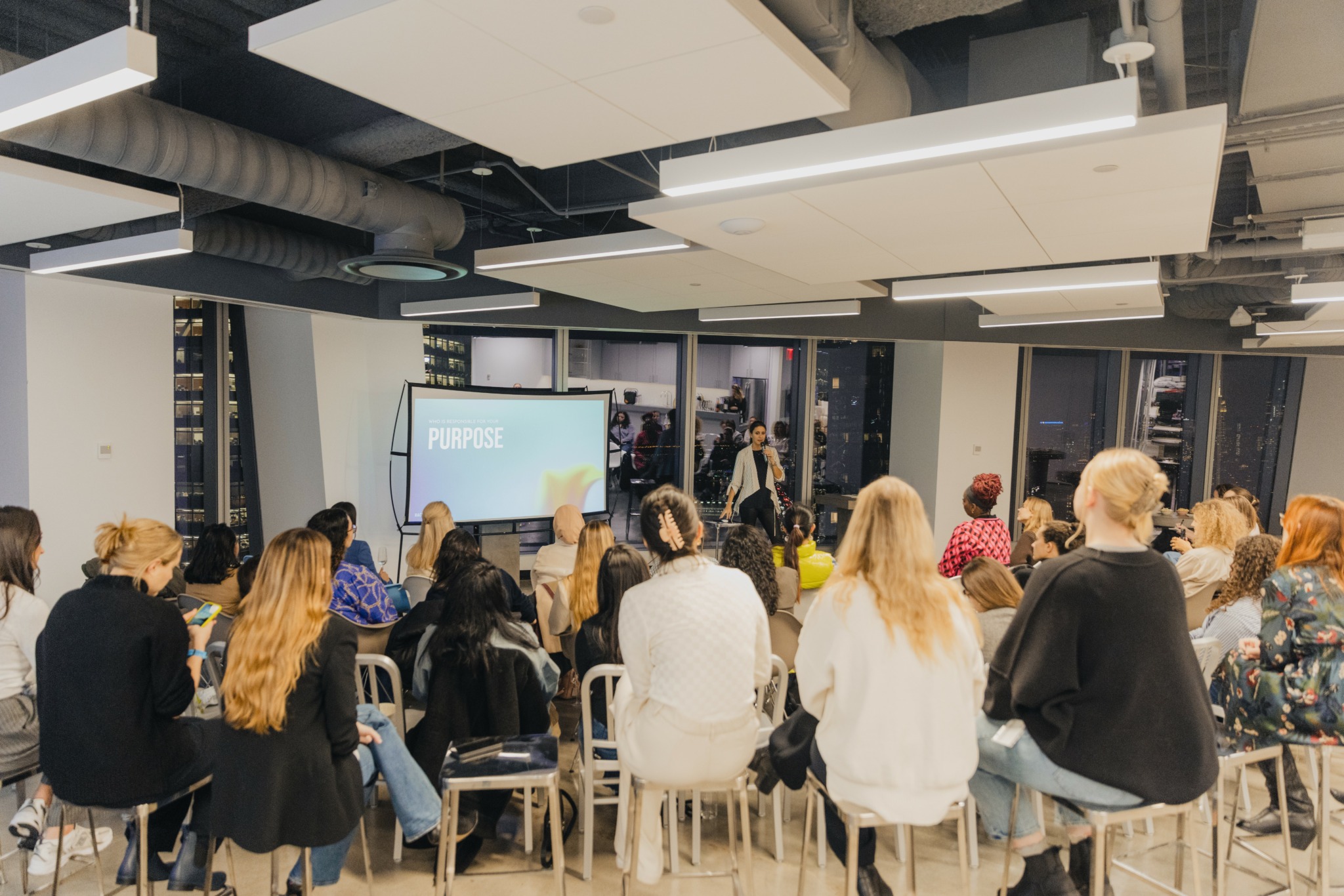
Great, appreciate you sharing that with us. Before we ask you to share more of your insights, can you take a moment to introduce yourself and how you got to where you are today to our readers.
My career path to becoming a coach is somewhat non-traditional. I started my career in investment banking at Morgan Stanley, where I worked my way through different roles in constant search of professional development, growth, and work that interested and excited me. I have always been someone who is willing to make a change if I don’t see a future with what I am doing, and so I didn’t follow suit with what my peers were doing. I worked across four different teams while at the bank, both in New York and London. After many years and a lot of long hours, intense deals, and a ton of incredible growth opportunities, I decided I was ready for a change.
Naturally, I looked at other roles in finance, having studied and worked in finance for the last decade. I have a distinct memory of walking out of an interview at a prestigious private equity firm in London and thinking, “I don’t want that job,” and then looking at the offers I had on the table and the other interviews I had lined up and thinking, “I don’t want any of these jobs.” This was a pivotal moment for me, as my identity, social circles, and sense of self were all wrapped around the finance industry. When you work in a job as intense as investment banking and spend over 80 hours a week engaged with that world, it becomes a huge part of your life. But I didn’t want it anymore.
So, I started to explore other opportunities and ended up getting a role working in Google’s real estate team. I was hired to lead and build a new team in the EMEA region that focused on strategic planning for Google’s office portfolio. My manager was amazing, the role was extremely entrepreneurial because the team didn’t exist before I joined, there was no one “above me,” meaning career growth and promotions were mine for the taking, and the work I was doing was interesting. Not to mention, the culture, the perks, and the people were incredible. Everything that makes someone happy and fulfilled in a job was present.
But about eight months into my role, I started to have a very clear gut feeling. All it said was, “This isn’t it.” Nothing was wrong, nothing was bad, I couldn’t point to anything that needed to be fixed…it made no logical sense. Yet, I knew, in my heart of hearts, that I was not in the right place. This was a hard thing to process as I felt I had worked so hard to make a massive change in my career, and to realize that it was not right, for seemingly no reason I could verbalize or point to, felt scary. If it’s not this, what is it? What do I want to do? What is my purpose? How do I even start to figure this out?”
So, I decided to meet with a career coach—knowing nothing about coaching or having ever worked with a coach before. I did one session with him. But it was not a normal coaching session. As we started talking, I was more interested in what he was doing than actually being coached. He would ask me questions, and instead of answering them, I would ask him why he asked me that and was curious about the framework he was working in. This led me down a four-month “due diligence” period of speaking to any and every coach who would speak with me, and in the end, I decided to enroll in a coach training program, thinking that it would 1) make me a better person (spoiler: it did!), 2) help me be a better manager and leader at Google, or 3) be something I wanted to pursue more explicitly. I went into the program with curiosity and complete openness to what might come out of it, with no attachment to being any one thing.
Within two months of joining my coach training program, I was hooked. I felt like for the first time in my life, I was learning something that not only intuitively “made sense” to me but also helped other people in a unique way. I was humbled by how much being coached was changing me and, more importantly, how much coaching as a modality can help people evolve and achieve their goals. Furthermore, I felt that I had tapped into something that I was intrinsically good at and that I was solidifying and honing parts of my being that had always been there but were underutilized. I finally understood the difference between natural skills and talents and learned skills and talents. For me, coaching felt so natural in contrast to, say, finance, which is my “learned” skill.
Towards the end of my ten-month training, I decided to start taking on coaching clients, kicking off the business that I still run today, almost five years later. I built my business for one and a half years while working at Google, ensuring I leveraged as many opportunities around me as possible—I ran workshops (both paid and free) to enhance my speaking skills and develop my content, co-hosted a retreat with a dear friend of mine, and took on a part-time role at Google focusing on Culture & DEI for Google Cloud. My vision was to try as much as possible to see what I enjoyed and what people needed before going off on my own.
In August 2021, I decided to quit my corporate job and run my business full-time. I was called to spend my days doing what I loved and knew that if I put my full energy behind coaching others, I would be able to contribute to the world around me by helping other people be better versions of themselves—talk about a mission!
What I Do & How I Do It
I work with people one-on-one and in group coaching programs, run retreats and leadership summits, develop and design leadership programs, host one-off workshops for organizations, and am a keynote speaker. My focus is split into two different areas: transition coaching, which is focused on helping people effect change in their lives, careers, and relationships, and leadership coaching, which is focused on helping executives, founders, and rising leaders become more self-aware and navigate interpersonal dynamics. I have developed a model that supports both focuses as it is foundational and the “back end” of all personal and professional development. I work on building self-knowing, self-trust, self-belief, and self-love.
In doing these things, people are able to take ownership of their lives and understand how to change from the inside out. This is what I am most proud of helping people with. A lot of coaches help people make changes in their external world, which is great but is limited. I wholeheartedly believe that if people explore and evolve in one or many of these areas (self-knowing, self-trust, self-belief, and self-love), then they will fundamentally shift their understanding of the world, and that is what allows them to make changes that are not only authentic but also sustainable. The work that I do with people is deep and real—it combines tactics, techniques, frameworks, taking action and making moves, all grounded in spirituality, emotional awareness, and conscious choice. It is the balance of these things that allows a person to change.
Who Works with Me
The people I work with are diverse. I am a marketing person’s nightmare because I do not attract just one demographic. My clients (both individuals and corporations) are all over the world—USA, UK, Germany, France, Nigeria, Poland, New Zealand—and work across many industries—finance, tech (startups and large companies), professional associations, consulting, marketing, etc.—and range in age from 23 to their late 50s. That is because the work I do isn’t about a person’s circumstances but rather about someone’s sense of self and perspective on the world around them. It is about the human, not the story, and therefore it helps a wide variety of people in all kinds of situations.
Some of the key challenges that bring people into my world include:
– Becoming a better leader (scaling up, new manager/leader, new team)
– Addressing cultural challenges in teams/organizations
– Developing emotional intelligence to navigate interpersonal dynamics more effectively
– Going through and/or creating big life changes (starting and ending relationships, becoming a parent, dealing with grief, moving countries, starting a new career chapter)
– Finding more purpose and making career changes (understanding what you really want to do and be)
– Getting promoted and rising to new leadership levels
– Developing more confidence and executive presence
– Becoming more peaceful and clear in your life and career
And so much more…!
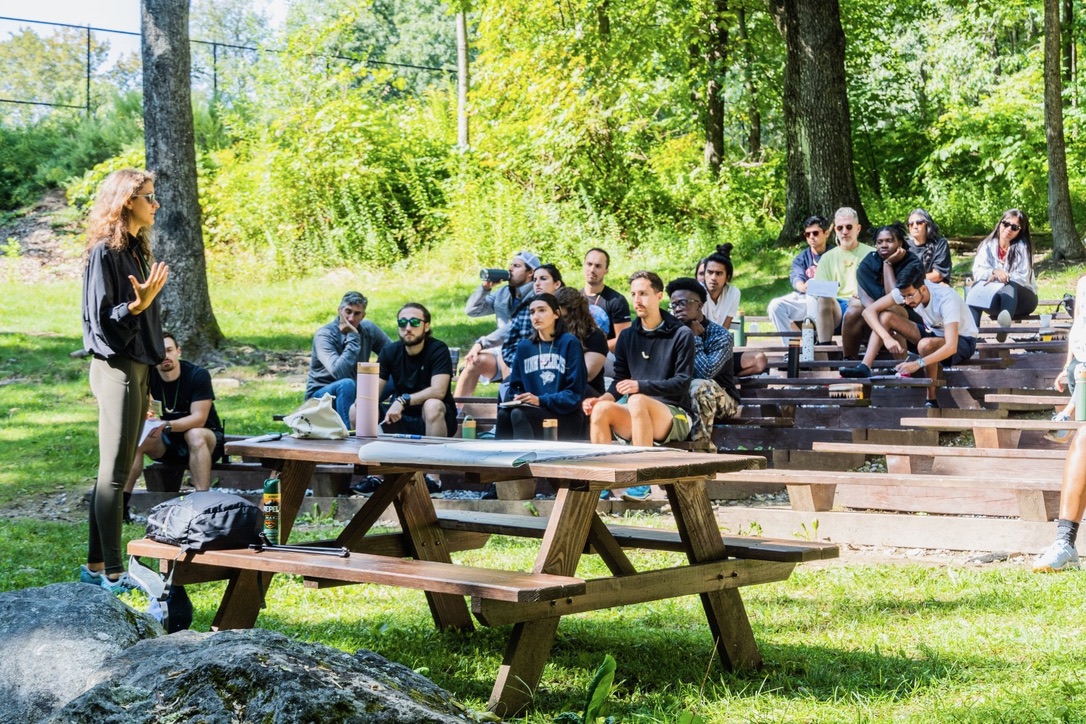
Any stories or insights that might help us understand how you’ve built such a strong reputation?
I see so many people start their businesses and focus on the things that are important but are ancillary to the foundation of their offering. More specifically, I see a lot of coaches start their business and focus all of their attention on social media and website creation. They figure out trends and spend a ton of time creating content and putting a great image out there. While these things are undoubtedly important, I made a conscious choice in the early days to focus on developing my craft as my number one priority. I spent my all of my time and energy figuring out how to be the best possible coach for my clients, going above and beyond their expectations. My thinking was that if I were a really incredible coach and could deliver the intended impact for my clients, then they would share with their friends and peers from an authentic place, celebrating the changes that they were able to achieve. The nature of being in the service industry is that when you do a great job, people often share it with people they care about. This thesis has proven to be true. My whole business has been built on word of mouth due to the quality of my coaching and I am only now dabbling and exploring alternative forms of marketing. I know that strategic marketing will help bring my business to the next level and help me access people beyond my current orbit, but I am so grateful that I prioritized my trade over the last years because I can attribute all of my success to that now.
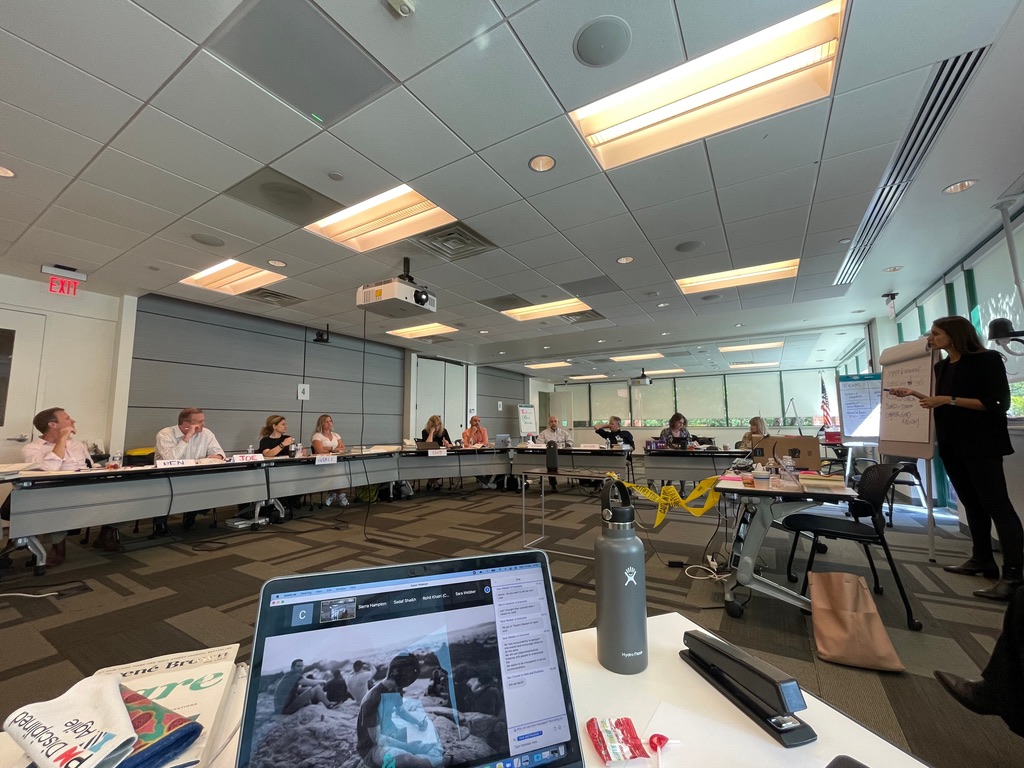
What are some of the biggest trends you are seeing in your industry and what do you think about this trend? What are the concerns, opportunities, etc. We’d especially appreciate if you can tell us about the trend through a story or anecdote that highlights the emergence of this trend.
What are some of the biggest trends you are seeing in your industry and what do you think about this trend? What are the concerns, opportunities, etc. We’d especially appreciate if you can tell us about the trend through a story or anecdote that highlights the emergence of this trend
Trend for Clients: Overintellectualization of Personal, Professional, and Spiritual Development
There is a massive trend towards overintellectualization in the personal development space. People are reading endless books, listening to podcasts, taking one-way courses, and consuming information rapidly. While this is an amazing starting point for change, there is a huge difference between understanding something in your mind and understanding something in your heart. The former provides energy, interest, and excitement behind change. The latter allows for authentic and meaningful change that is sustained beyond the initial excitement.
I worked with an executive leadership team for ~6 months who all understood the “right” ways to lead – with empathy, trust, patience, and openness. However, the company was going through a large strategic transformation and it was difficult and stressful. While many leaders knew how to lead powerfully, they lost sight of it and operated from a place of fear – which is natural! We are human and when we feel stressed, we often get tunnel vision and go into survival mode. However, that often means that while they knew the right thing to do, they didnt necessarily lead their teams in that way. It is why we “know” it is good to go to the gym but we don’t always do it every day. The work that I did with this team helped them raise awareness of their typical tendencies and patterns in their “stress state” and make a conscious choice on their mindset and perspective in order to diffuse the stress and allow them to access their “flow state” thinking. We worked on integrating the knowing with doing by raising self-awareness and activating their agency on how they acted.
I wholeheartedly believe we need more opportunities for in-person or real-time human connection and experiences to help us embody and integrate intellectual learning and inspiration. Most people stop at the intellectual level and don’t actually make a change. In fact, I often tell my clients to put down the self-help books, stop with the podcasts and focus on themselves, reflection, somatic awareness (how things feel in their body) and presence. We all have a deep wisdom within ourselves that we have forgotten how to access due to the distractions and content we consume.
Trend for Coaches: Quality of coaches
The barrier to entry to become a coach is not that high. Some people call themselves coaches without any training; they simply wake up one day and decide that they are going to “coach” others. This is really hurting the industry. I have spoken with many people who are skeptical about hiring coaches because they’ve had bad experiences or worked with inexperienced and untrained coaches.
One of the biggest challenges in the coaching industry is that it is not a heavily regulated industry, which means that there are many people claiming to coach others when, in reality, they are just advising or chatting with them. There is a big difference between coaching and advising, and it can be hard to discern what you’re getting into if you aren’t aware. This often leads to a less-than-satisfactory experience for people who hire coaches and leave feeling disappointed, as if they wasted their time and money.
Furthermore, the quality of coaching programs varies significantly. Some teach basic coaching skills (a great starting point), while others push their trainees to do the deep work on themselves to be able to coach effectively. Now, I’m not a stickler for higher education or prestigious programs—I believe there are many ways people can learn to coach and be extremely impactful. But I do believe that coaches need to go through enough training, and more importantly, do the inner work so they can show up for their clients without judgment and with the ability to remove their “self” from the conversation. When you can do that, you can coach effectively and truly serve your clients.
Removing judgment and your “self” from the conversation is not easy. It takes a lot of deep work to truly understand yourself, your patterns, and how your life experience might influence how you show up for clients. I don’t believe you can do that after just three weeks of coach training, nor do I believe that being intuitive or wise is enough to be an effective coach. Reflecting on the skills and experience I gained through my coach training program, I struggle to see how people can develop those skills organically—it took intentional work and training to unravel my habits and learn how to show up as a coach.
If you’re thinking about hiring a coach, don’t hesitate to ask how long they’ve been coaching, whether they’re trained or certified, what their training was like, and if they have past clients who are willing to share their experiences. Also, ask if they are open to walking away from prospective clients (this is important—good coaches know exactly whom they can best serve). Request a free or discounted session to test your connection and get a sense of their style.
Contact Info:
- Website: https://rachelkcoach.com
- Instagram: rachelkcoach
- Linkedin: https://www.linkedin.com/in/rachel-kourakos-59441729/
- Other: https://youarethenorthstar.com
